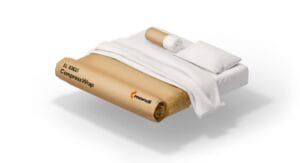
The German economy is characterised by medium-sized companies which, thanks to a strong corporate culture, a clear strategy and innovative strength, manage to be leaders in their field and hold their own against international competition. They form the backbone of our economy. The Felix Schoeller Group is one of these so-called hidden champions.
In its more than 125-year history, the family-owned company has repeatedly succeeded in identifying new market and customer requirements as well as reinventing itself. As a producer of speciality papers, the Felix Schoeller Group is now a sought-after partner when it comes to sustainable packaging solutions and substitute materials for aluminium and plastic, among other things.
The early years: visionary power and pioneering spirit
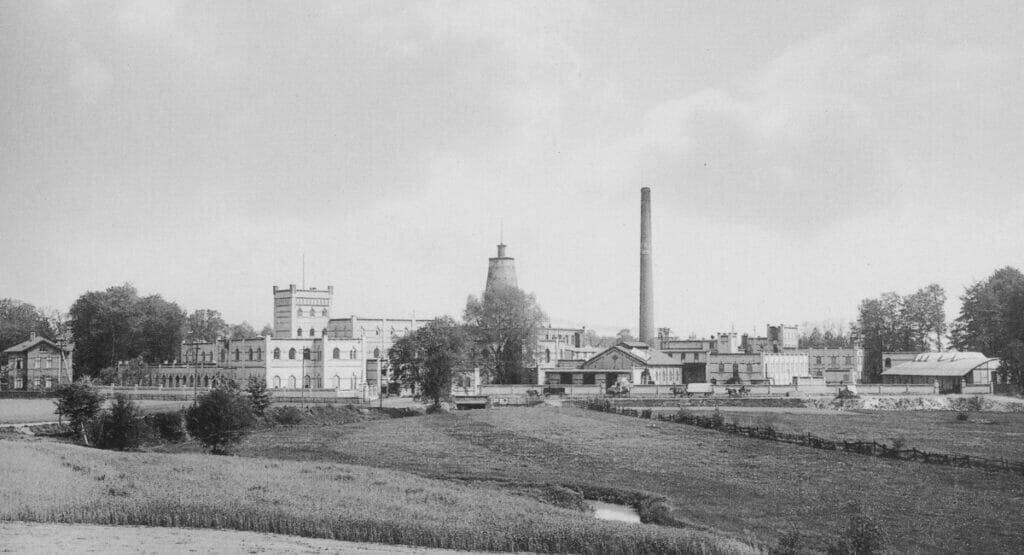
Company founder, Felix Herrmann Maria Schoeller, was a man of vision. Like many of his contemporaries, he was the son of a papermaker and was fascinated by the emerging field of photography at the end of the 19th century. He recognised early on the rapidly growing demand for silver-salt photographic paper and developed a business idea from this realisation. In 1895, he took over a paper mill east of Osnabrück and founded Papierfabrik Felix Schoeller. Even then, the company focused on diversifying its product range and, in addition to photographic base papers, also produced document papers, drawing and packaging papers. This laid the foundation for the triumphant success of the family business. This was, without a doubt, the start of an eventful company history, characterised by change and adaptation.
At the beginning of the 20th century, the photographic paper business was flourishing and Felix Schoeller was one of the key innovators in this market segment. When the founder died in 1907, his sons Felix Heribert, Lothar and Gerhardt Schoeller took over the management of the still young company. It is not unusual for a change of management and generation to mean a break in the success story of a company. However, this was not the case under the new management, which further developed the vision of the company founder and recognised the enormous market potential for photo papers. Expansion followed accordingly, initially within Europe. And in 1912, the company ventured across the pond and founded the Felix Schoeller Paper Company in the USA. The subsidiary settled in New York and in 1932 – in the spirit of the company’s innovative founder – launched its first attempt to produce coated paper.
Evolution instead of revolution: the success story continues
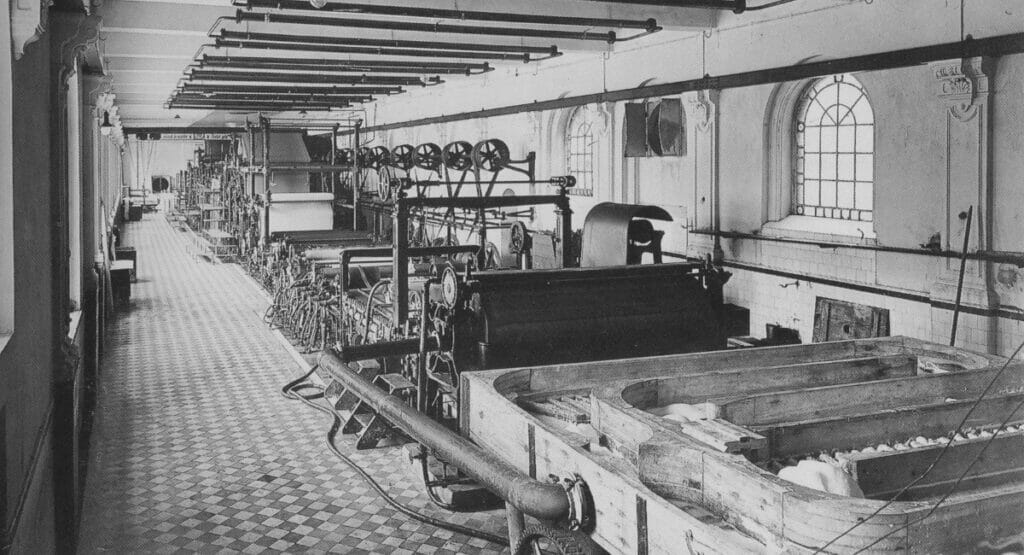
After the Second World War, there was another generation change. In 1949, the third generation, Klaus, Felix Richard and Gert Schoeller, joined the company management. The company’s international triumph continued under the new management. In 1962, it had an export share of over 60 percent for the first time. Success on the world market was also in this phase along with its innovative spirit, which has been part of the company’s DNA since its foundation. One example: as early as 1964, the company built the first extruder for coating photo base papers, thus providing the basis for the decision in 1980 to concentrate on photo base papers in the product range. This was followed in 1986 by the PM 1, at that time the world’s most efficient paper machine for photo base paper.
Product diversification and growth: open for new things
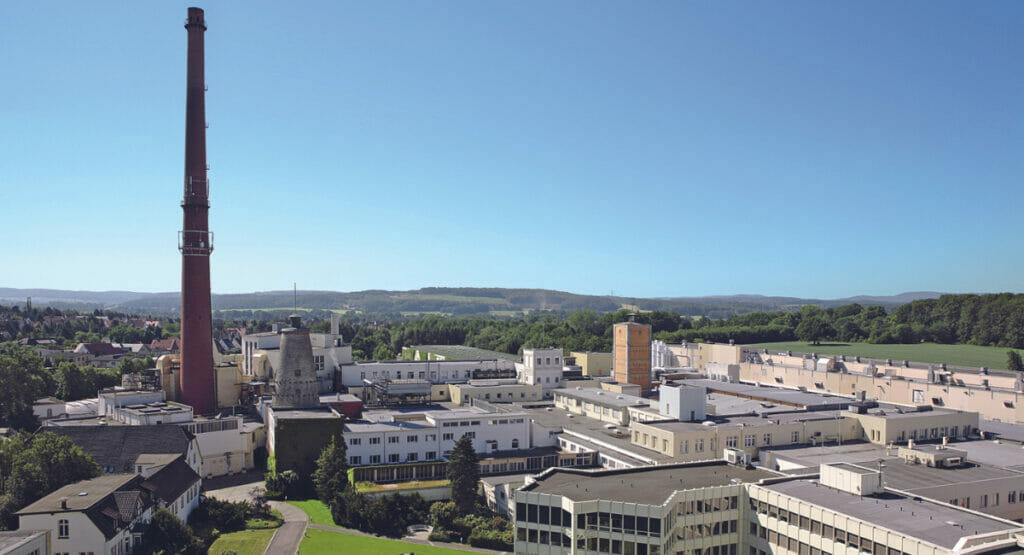
The advent of digital photography was the trigger for reexamination. The company management recognised the possible consequences of digital photography early on and reacted with a new corporate strategy. The company again broadened its product range considerably and entered into the production of high-quality special papers for inkjet printing systems and decor papers. In 1993, the decor business of Technocell AG was taken over and Technocell Dekor was founded.
The new strategy quickly bore fruit. A major step in the course of growth was the expansion of the Weißenborn mill in 1998 with an investment volume of 300 million euros. This made the plant the world’s only integrated site for photo imaging papers. Expansion continued in the 2000s with sites in Canada, Russia, Japan, Malaysia and Australia. In 2001, for example, Felix Schoeller acquired a majority stake in the Kunz Group’s decor paper mill in Drummondville, Canada. The portfolio was also steadily expanded, as in 2004 with the introduction of the pre-impregnated PRIP®.
Today, the Felix Schoeller Group has eleven production sites and representative offices worldwide.
The current company management: on course for a sustainable future
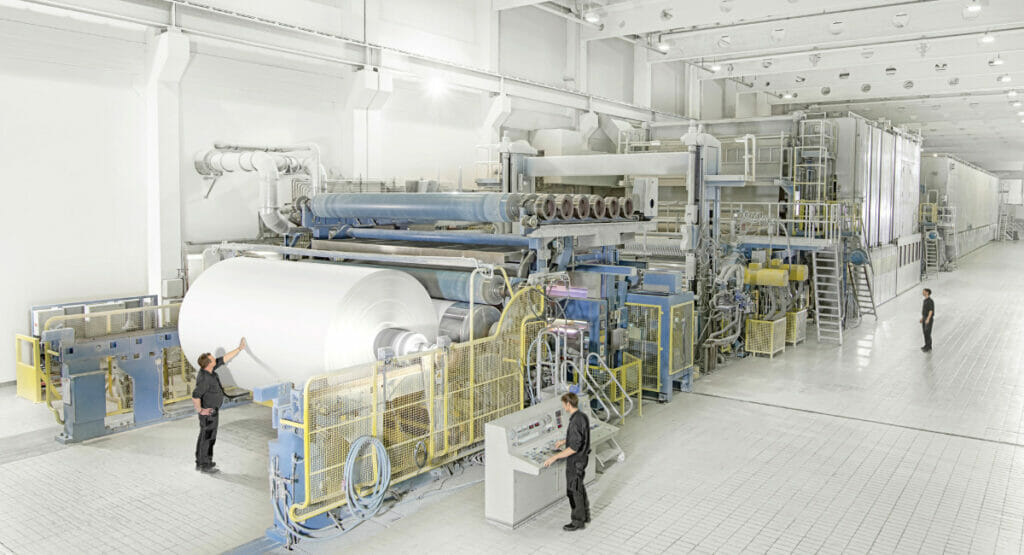
Since 2018, Hans-Christoph Gallenkamp has been managing the family business in the fifth generation. A paper engineer by training, he began his career in the family business back in 1997. He passed through a wide variety of positions before taking over as CEO. Under his leadership, numerous initiatives were launched to position the Felix Schoeller Group for success. These include Felix Schoeller Packaging which features another business area: sustainable packaging solutions.
Today, Felix Schoeller is one of the leading paper manufacturers producing both base paper and coated paper, combining extensive paper and coating know-how with state-of-the-art machines and technologies. Skills such as paper printability have been transferred to the packaging segment. In the spirit of sustainability, the experts support their customers in replacing conventional materials – such as plastic or aluminium – step by step with more environmentally friendly solutions, without losing sight of the functionality and product protection of the packaging. The product portfolio includes, among others, the sustainable paper base PrimePaper and the paper composite series FlexPaper.
FlexPaper pure: the sustainability star
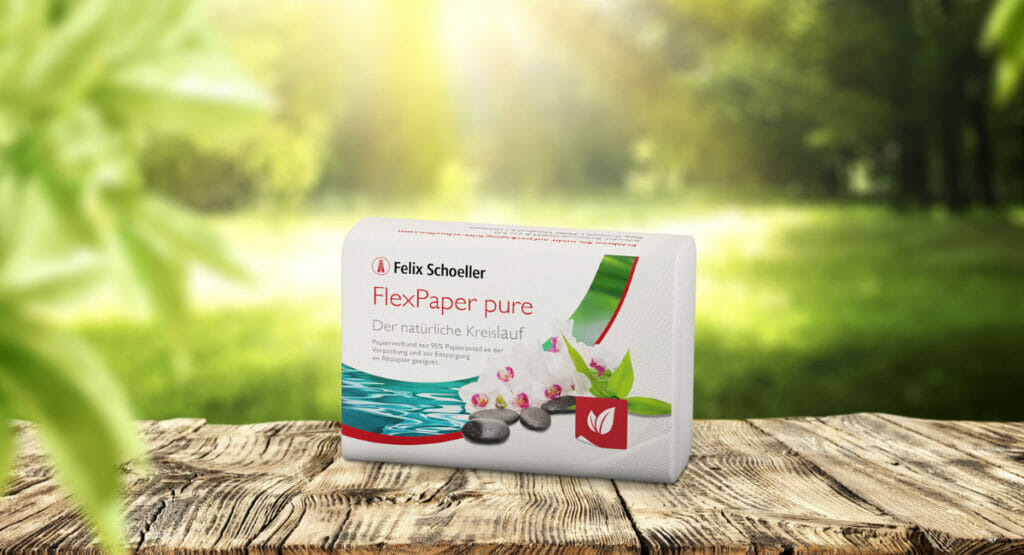
One product stands out from the comprehensive portfolio: FlexPaper pure. It is an expression of Felix Schoeller’s innovative strength and, with a high paper content of 95 percent, makes an important contribution to effective recycling management and brings sustainability to the entire life cycle of packaging. FlexPaper pure is manufactured using a thin-layer extrusion process. It is based on renewable FSC-certified pulp from sustainable forestry. In addition to the ecological aspects, the special paper convinces customers with very good printing results in flexo and gravure printing in order to position the respective product attractively in the trade. FlexPaper pure is suitable for disposal in waste paper.
However, sustainability does not only play an important role within product development. For the management team and Hans-Christoph Gallenkamp, combining ecological action with economic principles for a sustainable business is an integral part of the Felix Schoeller Group’s philosophy. The company is certified for quality, safety and the ecological use of resources, as well as for climate-neutral paper production. For example, the company has recently been rated gold in the global EcoVadis sustainability rating three times in a row. With a rating that has risen again to 68 in 2022, the group is among the top five per cent of all companies assessed.
125 years and not a bit tired
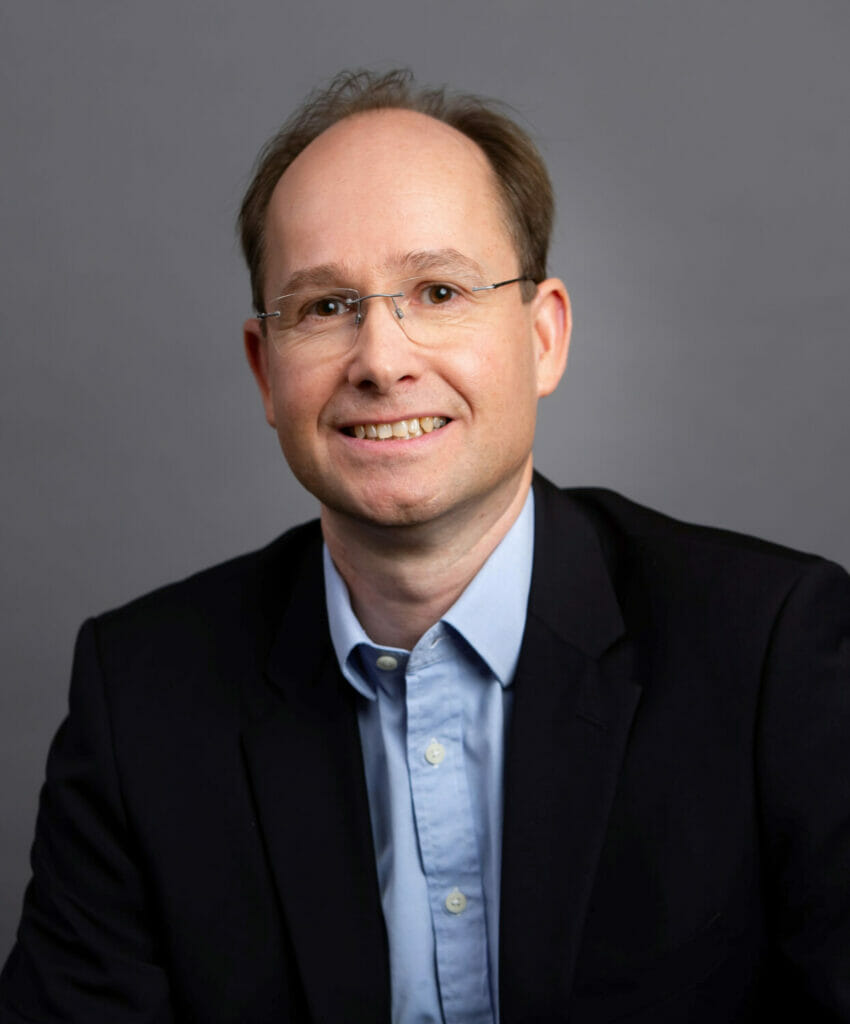
The history of the Felix Schoeller Group is an example of how family-run companies can hold their own in the global market with vision, market understanding and customer focus. High-quality speciality papers are developed, manufactured and marketed for a wide range of applications and market segments in numerous industries and markets around the world. The diverse product portfolio also includes flexible paper composites for packaging, photographic and digital printing papers. In 2021, the world market leader for photographic and decorative papers produced around 545,000 tonnes of speciality papers for around 1,800 customers in over 65 countries with more than 3,700 employees worldwide. Turnover rose to over 1 billion euros (1,048.6 million) for the first time in the company’s more than 125-year history.
In 2020, the 125th anniversary was celebrated. The secrets of the family business’s success? It grew steadily, but always sustainably. Long-term success was more important to all generations than short-term profit. The second major success factor was being open to new things; the constant willingness to recognise trends and to draw the consequences for one’s own company and to see this not as a danger but as an opportunity. Accordingly, the course is set for success in the future as well.
The vision for 2030 is: „We are a family business today and will be for future generations.“
Mondi - Weitere Meldungen

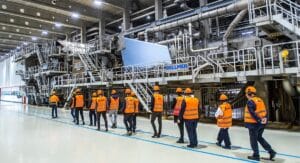
Mondi weiht neue Papiermaschine im Werk Štětí offiziell ein
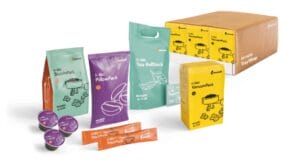
Kaffeeverpackungen zukunftsfähig modernisieren
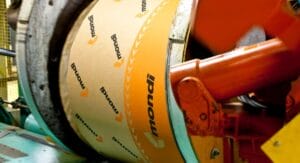
Mondi zukünftig mit zwei Geschäftseinheiten
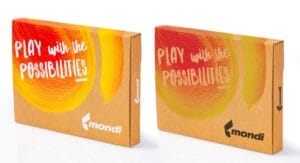
Mondi erweitert Digitaldruck um die Farbe Weiß
